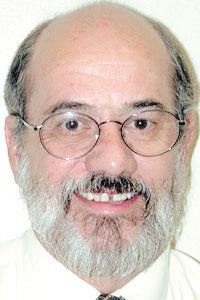Academic advising core of freshman success

Dr. James Jackson – Professor of Biology
Through my years here at Missouri Southern, I have developed several basic assumptions about advising. Good advising is what makes excellent universities and colleges. Advising and enrollment are not the same. Academic advising is the core of freshman success. My advising goal is not just to enable a student to walk at graduation; my goal is to enable each student to enter the professional world as an intellectual. Most importantly, an adviser should help the student develop and appreciation for the core courses. Lastly, I believe that advising is a set of established expectations between the adviser and advisee.
What should students expect from his or her adviser? Students should expect the adviser to be truly interested in: Their professional goal, or helping each student choose a goal, their proposed graduation date, their life limitations (jobs, family, and location) and their intellectual and academic strengths and weaknesses.
Students should expect the adviser to help them determine the right courses for their specific goals. If students think all they need for professional growth is in the catalog, they are naive. In the legal world, a person who acts as his own lawyer has a fool for a client. This is true for advising. With a specific professional goal in a specific major, there are still lots of course variables in relation to the requirements of professional school, graduate school, or employment. How does the adviser find the requirements? He or she will visit the web site or call the institution while the student is in the office. This is why it is wise to have academic advisers from the discipline rather those in an advising center.
Students should expect the adviser to make a tentative schedule of all of the non-core (major) courses that they are going to take. This will occur in their first or second advising meeting. Why does each student need these to be scheduled so early? Two reasons: Many courses are offered at odd intervals and need lots of pre-requisites and the course offerings in each department are in a constant state of flux in timing, and this flux happens too fast to be in even the most recent catalog.
Most professions are requesting some sort of applied experience before acceptance. These experiences include internships, independent studies, volunteer activities, or discipline-specific work experience. Students should expect the adviser to help schedule these experiences into their program of study. Why is this their adviser’s responsibility? Their adviser is part of the proposed professional community and has the experience and contacts to suggest many of these opportunities. This is why it is wise to have academic advisers from the discipline rather that those in an advising center. Most of these experiences include enrolling in a discipline-specific course. (Internships, independent studies, etc.). The adviser has the skills to guide them through these seemingly labyrinthine processes.
Most of the students will take a discipline-specific capstone exam in their junior year. The adviser should help each student develop a strategy to excel in these tests. Examples of these exams are the GRE, MCAT, PCAT, and LSAT. The adviser has taken and done well on one or more of these exams and is best qualified to help them with these in the following ways: To help the student project a date to take these exams in relation to post graduation application procedures, to help the student know the best courses to take prior to taking these exams, and to help the student design a strategy to excel in these exams.
The adviser should know each student well enough to write a very accurate letter of recommendation. The adviser will also help the student select other individuals capable of representing their intellectual ability as it relates to applications to graduate schools professional schools or jobs.
The adviser should know each student well enough to recommend them for academic awards and scholarships when appropriate.
The adviser should help each student with the subtleties of complex forms such as academic petitions, applications for graduation, and other documents.
Most importantly, the adviser will help each student appreciate the core curriculum courses. Including these courses in the curriculum is what separates universities from vocational schools and makes each student an intellectual rather than a technician. This concept must be emphasized.
What do I expect from my advisees? I expect advisees to solidify their professional goal through reading, research and hands-on experiences. I expect advisees to appreciate the intellectual development afforded by the core curriculum courses and to be as transformed by these courses as they are their major courses. I expect advisees to develop an understanding of their professional strengths and weaknesses and work with me to address each of these. I expect advisees to communicate with me regularly by office visits and correspondence at least once or twice a month. I expect each student to come to enrollment advising sessions with a tentative schedule for the next semester that is based on our mutually developed academic strategies. This will free up more time for real advising. I expect each student to make sure that there are no institutional financial holds on their registration procedures. If they have financial constraints, I will refer them to the appropriate department on campus. I expect each student to discuss physical or emotional impediments to their academic success so that I can refer them to the appropriate department on campus. I expect and encourage students to visit the career services department frequently to seek information and professional opportunities. I expect advisees to commit 100 percent effort toward their academic and professional goals.
Your donation will support the student journalists of Missouri Southern State University. Your contribution will allow us to purchase equipment and cover our annual website hosting costs.



























